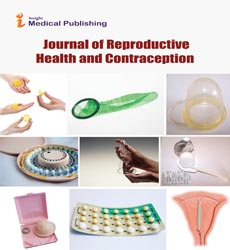Knowledge about Children’s Health is Rapidly Expanding
Park Blunch
Park Blunch*
Department of Child Health and welfare, Washington and Lee University, VA, USA
- *Corresponding Author:
- Park Blunch
Department of Child Health and welfare
Washington and Lee University, VA, USA
E-mail: blunchark@kaist.ac.kr
Received Date: December 10, 2021; Accepted Date: December 15, 2021; Published Date: December 20, 2021
Citation: Blunch P (2021) Knowledge about Children’s Health is Rapidly Expanding. Vol.6 No.6:17..
New knowledge about children's physical, mental, and social development, as well as the causes and treatments, has fuelled paediatric health care. The impact of living conditions on childhood diseases as well as the changing environment in reality, the corpus of knowledge on the subject is extensive. We've accumulated a lot of knowledge since the physician Charles "How to Nurse a Baby" was the first instructional pamphlet written by West. It's incredible that a sick youngster" was written in 1854. Despite this, the research evidence used by nursing and allied health professionals to inform child health care lags behind that of paediatric medicine. The capability and production of paediatric nursing research has been significantly hampered by a lack of funding. This has far-reaching consequences. To begin with, children and families may receive inconsistent and lowquality care that is not based on research. Second, consensusbased 'best practise' recommendations are more easily questioned and rejected when resources are limited. Third, the lack of opportunities for these health professional groups to gain research skills and engage in the generation of research evidence stifles the professions and specialty's growth and development. We envisioned three key goals as this Special Issue in Child Health Care expanded and developed.
First, to highlight some of the outstanding research being done by nurses and others to improve evidence for preventative and restorative nursing care of children and families. Second, to draw attention to the wide range of child and family health topics and techniques of inquiry that nurses are investigating in order to gain a better knowledge of children's health care requirements. Third, to draw attention to some of the many substantial gaps in our scientific knowledge base that must be addressed if children's health outcomes are to improve. The profession's and specialty's growth and development. Several research in this Special Issue add to our understanding of the development and health consequences of children and young people who face a variety of health issues. McCullough and colleagues (2013) tracked the quality of life of ambulant children and adolescents with cerebral palsy across time (CP). Their major conclusion of lower physical health and happiness in comparison to the general population is substantial but not unexpected
However, their discovery of stability or improvement in most measures over time is novel, and it points to areas where more research and therapy should be directed. According to the findings of, a sense of coherence is a significant predictor of felt health in adolescents with congenital heart disease. Their longitudinal study design and advanced modelling offer guidance for future research and intervention studies aimed at improving the health of young individuals with chronic illnesses. The real population is substantial, but not unexpected. Framework Analysis was used to gain fresh insight into the uncertainty and social ambiguity that young cystic fibrosis patients face when transitioning from paediatric to adult care. Their findings point to ways that nurses might help young people transition into new roles and lessen the anxiety and loneliness that they often feel. It published the results of a major secondary analysis of national data to look at the link between postnatal exposure to second-hand smoking and the development of attention deficit hyperactivity disorder (ADHD) in children.
Open Access Journals
- Aquaculture & Veterinary Science
- Chemistry & Chemical Sciences
- Clinical Sciences
- Engineering
- General Science
- Genetics & Molecular Biology
- Health Care & Nursing
- Immunology & Microbiology
- Materials Science
- Mathematics & Physics
- Medical Sciences
- Neurology & Psychiatry
- Oncology & Cancer Science
- Pharmaceutical Sciences
